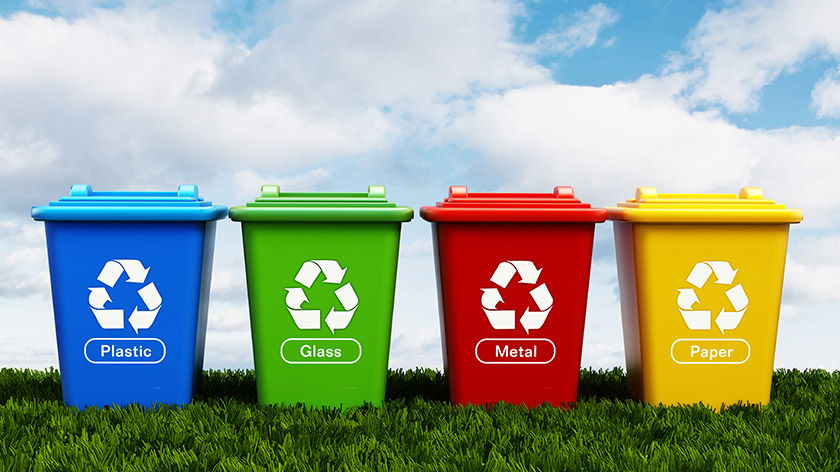When consulting the lists, look for a company likely to give reliable service. Check on these factors :
Which materials do they take?
Many categories of material are used for recycling. Check which materials the firm can take – it may help if they can take more than one type. Check grades and types of material; they may offer to visit to look at the wastes in question.
What quantities do they require?
Companies will only collect if it is economic to do so. Many firms will ask you to amass a certain amount of material before they will collect; otherwise they may ask you to deliver.
Collection / delivery
Distance from their depot may be a factor, as will the frequency they visit your area, and the kind of training they give their drivers. You may find that other local firms want to recycle a particular material, and it then becomes more worthwhile for a recycler to collect, carrying out a ‘milk round’ to several companies. Can you work with neighbouring businesses, for instance, if you are on an industrial estate, to save costs, journeys, energy and storage space, benefiting the whole estate? Check on the regularity of the service they provide: is it weekly, monthly, or do you have to phone by a given time each week to arrange a pick-up?
How can you maximise separation and storage of materials at your premises?
Contamination of materials can make them very difficult to recycle. As a general rule, materials have least contamination if segregated close to the point where they are produced. Ask how materials must be separated, and discuss where this can be done on your premises. Check what containers (if any) the contractors provide, for what quantities, and if baling will be sensible. Make sure you have the room to store the materials safely. Often they can be collected right across a factory or plant, then grouped together at a central point – usually under cover, and with lorry access and turning space. If it is very difficult to find enough space for storage, you may be able to choose a contractor who can visit more frequently – but this will cost more.
Involving your staff
Does the company have advice on involving or informing your staff? Recycling collections work best when staff are involved from the start, the system is monitored, and the results disseminated (cheerfully) to the staff. People who care about the environment will value information about the difference their efforts have made. Ensure the system proposed will be understood by your staff, and acceptable to key people like cleaners or porters who could bear the brunt of any extra work. It also helps to thank people occasionally. Some companies encourage competition between groups of staff to see who can recycle most!
Payment or cost
Ask what the contractors pay for materials or (as is likely for materials such as cardboard), they charge for collection. Such costs must be weighed against existing disposal costs and the environmental benefits to you of reducing the wastes from your premises. Many prices for secondary materials are cyclical, so enquire what policy they adopt when the price falls. (Sometimes smaller businesses are more loyal to suppliers at such times because they need them, whereas large businesses can simply shed their smaller contacts. This isn’t always true, however – a severe fall in prices can destroy small businesses while larger ones survive.) Ask over what period the recycling company can guarantee the price. In calculations about the cost-effectiveness of any recycling system, include costs of staff and storage space. Some companies will arrange to pay a charity or worthy cause on your behalf.
Subsidiary services
Some firms may offer a subsidiary service – for instance some paper recyclers may have shredding services for confidential papers. Don’t be paranoid and shred everything – it’s bulkier and may be less efficient and more awkward to recycle. Most companies will provide a confidential disposal certificate. Some companies sell products which they’ll take back when used to recycle, thus “closing the loop”.
Contraries
It is important to find out the ‘contraries’ – things that damage the recycling process must not be in the materials collected (no coloured paper if you are selling paper as office white (you can sell as coloured, but get less money). Such details must be relayed to all relevant staff, and it is important they understand, particularly in industries with a large turnover of staff.
Talk to your usual waste contractor
Mention to your normal waste contractor that you’d like to set up a system to collect materials for recycling. They may have valuable contacts, give you worthwhile advice, or offer to modify your present contracts and undertake some recycling themselves.
Proof of registration
Check that the companies you’d like to carry your waste are registered or exempt waste carriers. Ask to see a copy of their certificate of registration and check it is not out of date – or verify that they are exempt from registration. If there is a problem, check with your local Environment Agency office.
